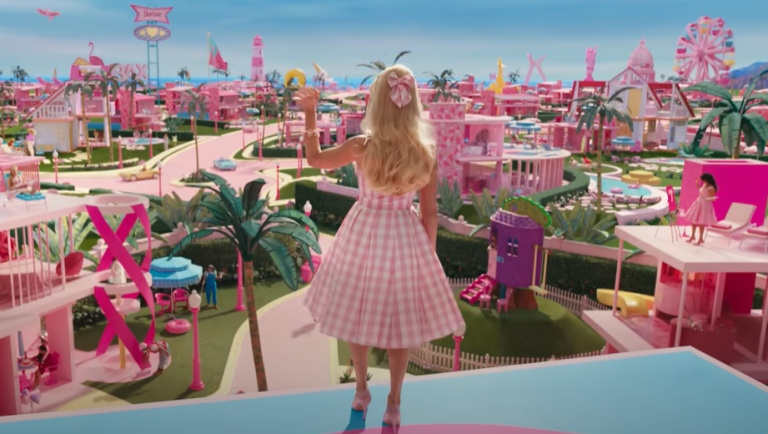
“Barbie,” a movie on track to become the highest-grossing movie in the United States this year, has triggered discussions on patriarchy and feminism. Most people who saw the movie say they either liked or loved it. According to a survey from Resume Builder, 62 percent of women loved “Barbie,” while 31 percent liked it, and 50 percent of men loved the movie, while 43 percent liked it.
Almost all viewers, or 94 percent, say they had a positive opinion of women in the workplace before seeing the film. However, after watching the movie, 53 percent of viewers say it improved their viewpoint. This point was slightly more true for men than women and more accurate for younger viewers. Additionally, 57 percent of viewers say they have conservative political views, 56 percent of moderates, and 47 percent of liberals say the movie improved their opinion of women in the workplace.
Similarly, most viewers said that before watching “Barbie,” they had a ‘very favorable’ or ‘somewhat favorable’ opinion of women in leadership. The movie improved the opinion of women as leaders for 57 percent of viewers. This was more accurate again for men and more conservative viewers. In fact, 74 percent of conservative men say “Barbie” improved their view of women in leadership positions. Overall, before watching “Barbie,” 19 percent believed women were stronger leaders than men, but after watching the movie, that percentage increased ten points to 29 percent.
Additionally, the survey found that 73 percent of viewers think women work better together than men do since watching the movie. Before seeing the film, this thought was held by 67 percent of viewers. Co-founder and CEO of AIScreen Nikita Sherbina believes Barbie effectively explores gender stereotypes and patriarchy in the workplace. She said, “By contrasting Barbieland’s initial perfect world with the discovery of male-dominated systems, the film subtly addresses the issue of patriarchy and its effects on women’s empowerment in both fictional and real settings.”
Sherbina continued, “The Barbie movie adeptly portrays women as effective leaders through its depiction of Barbieland, where dolls can excel in various professions like lawyers, doctors, physicists, and even presidents. This representation emphasizes women’s capabilities in leadership roles, reflecting a positive and empowering image.” Overall, 81 percent of respondents believe that patriarchy affects the workplace, and of this group, 79 percent say the movie definitely made them more aware of this.
Men are slightly less likely to believe patriarchy affects the workplace than women. However, men who believe patriarchy affects the workplace were likelier than women to say the movie made them more aware of it. Younger viewers were also more likely to say that patriarchy affects the workplace and that the movie increased their awareness.
Phillippa Quigley, who runs a women’s wellness clinic and is a senior editor at Soma Analytics, says, “The dynamics in Barbie Land, with Kens being more about appearances and Barbies being about substance and achievement, aren’t just for laughs. It’s as if someone flipped the script of our reality. Having worked one-on-one with so many women, I’ve often witnessed firsthand the pressures they face, from managing perceptions to fighting unwarranted biases. This humorous yet sharp commentary in the movie, I believe, can be an eye-opener for many.”
It’s amazing how a movie can change your perspective and open your eyes to see how things are in the world. However, because of “Barbie,” some people may change their perspective and make things more equal for women in the workplace.
